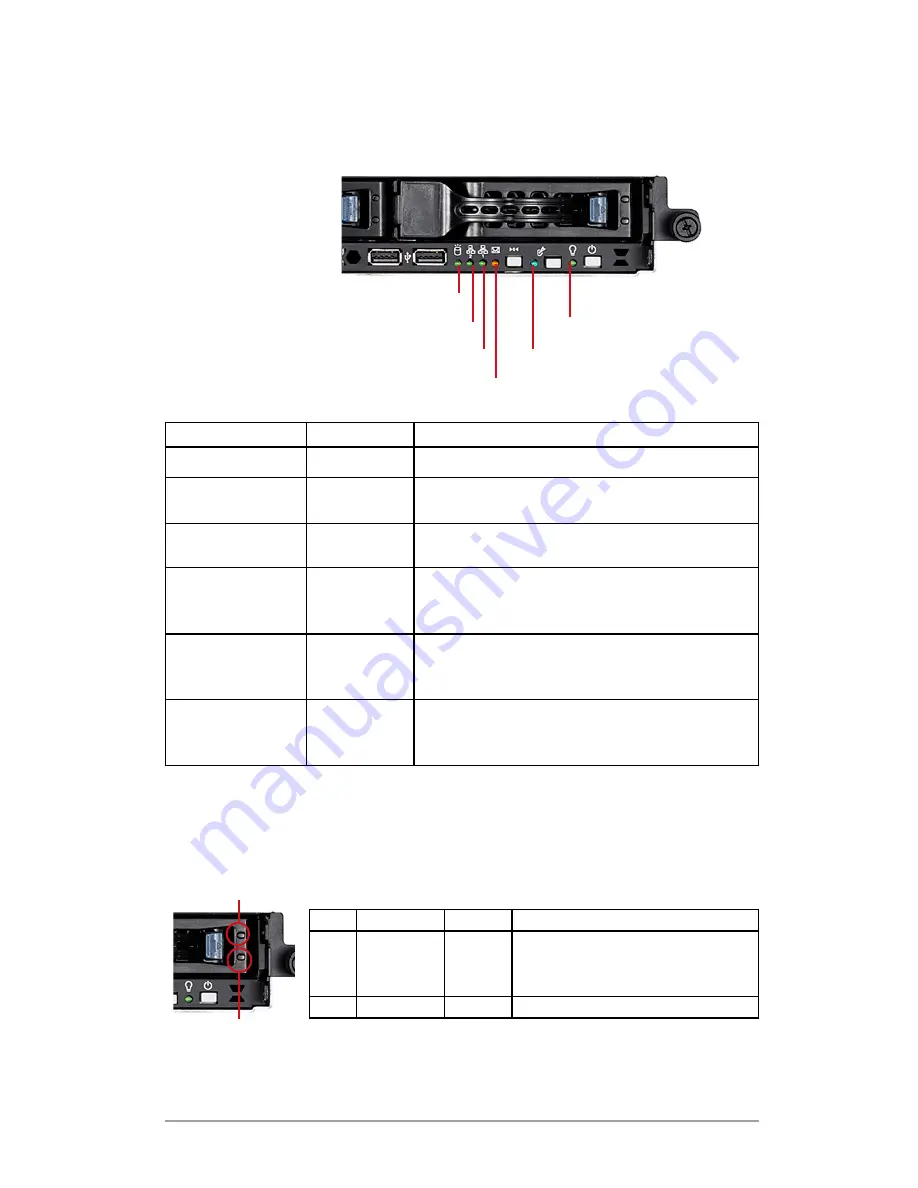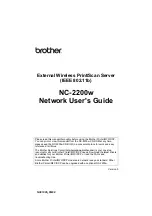
ASUS RS162-E4/RX4
1-
1.6 LED information
HDD Access LED
LAN2 LED
LAN1 LED
Message LED
Location LED
Power LED
LED
Display status Description
Power LED
ON
System power ON
HDD Access LED
OFF
Blinking
No activity
Read/write data into the HDD
HDD Status access ON
OFF
HDD is present
No HDD present
Message LED
OFF
ON
System is in normal condition; no incoming event
ASWM detects a system problem;
(Log in to ASWM to identify and resolve)
Location LED
OFF
ON
Normal status
Location switch is pressed
(Press the location switch again to turn off)
LAN LEDs
OFF
Blinking
ON
No LAN connection
LAN is transmitting or receiving data
LAN connection is present
1.6.1 Front panel LEDs
1.6.2 HDD status LED
HDD status LED 1
HDD status LED2
SCSI HDD LED
status
Description
LDE1 GREEN
RED
RED/GREEN
ON
ON
Blinking
SAS/SATA-II HDD power ON
SASHDD failure
SAS RAID reset
LDE2 GREEN
Blinking Read/write data into the SAS HDD
Summary of Contents for RS162-E4 RX4
Page 1: ...RS162 E4 RX4 1U Rackmount Barebone Server User Guide ...
Page 57: ...ASUS RS162 E4 RX4 2 39 ...
Page 58: ...Chapter 2 Hardware setup 2 40 ...
Page 59: ...ASUS RS162 E4 RX4 2 41 ...
Page 60: ...Chapter 2 Hardware setup 2 42 ...
Page 112: ...Chapter 5 BIOS setup 5 40 ...
Page 136: ...Chapter 6 RAID configuration 6 24 ...
















































